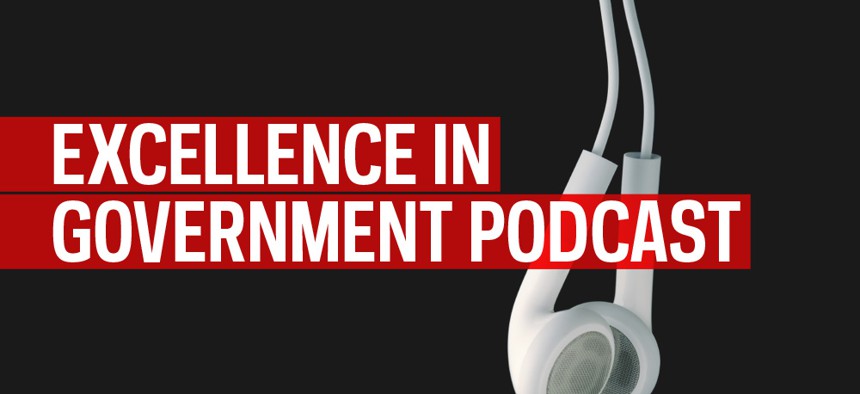Why Managing Sucks (and How to Fix It)
We explore Results Only Work Environments (ROWE) with author Jody Thompson, author of “Why Managing Sucks.”
Download this episode | Subscribe on iTunes
The Excellence in Government Podcast features interviews with public and private sector thought leaders to offer rising feds tips for tackling government’s most pressing management challenges.
You’re here because you made a choice. You read the headline, synapses firing as you mulled it over, and then clicked...Maybe because you disagree: “Managing is great!” you say. “How could anybody say otherwise?" More likely, you read the headline, and thought one of two things: “YES, managing does suck” or, sad faced, “Yes…my manager sucks.” Either sound like you? If so, let’s get right to it: Why does managing suck and how can we fix it?
“The main reason is [managers] get caught in this trap of having to manage people’s time: they’re managing people instead of the work,” says Jody Thompson, coauthor of Why Managing Sucks and How to Fix It and recent guest on the Excellence in Government Podcast . “When you get into a management position you feel good about it . . . but then you find out that you’ve become a hall monitor, that you’re watching everybody and that people aren’t happy and you don’t know how to make them happy.”
So how do you make managing less, well, sucky? Thompson says the secret is in a new way of managing your workforce: the Results Only Work Environment or ROWE.
ROWE to the Rescue
“A Results Only Work Environment gives people complete autonomy,” said Thompson. “They don’t ask permission of their manager on how or where they need to work.”
In a ROWE, managers and employees get clear about measurable results and employees are held accountable on whether or not they deliver those results. How they do it—from home, in a coffee shop, in the middle of the night or in their underwear—does. not. matter. In a ROWE, managers are mentors and coaches. The era of manager as hall monitor, says Thompson, is a holdover of the Industrial Age. It’s time the way we manage joins the Digital Age.
“People’s lives are at stake,” Thompson warns. “People are giving up their lives for things that don’t matter . . . we need to give people that thing they crave . . . the freedom to live their lives how they want to live them. Treat them like adults and hold them accountable to results.”
- But how do you even begin to implement a ROWE?
- What's the effect of a ROWE on workforce engagement?
- How do managers avoid “innovating” themselves out of a job?
- What are the common challenges faced in the early stages of a ROWE?
- And how, as a federal manager, do you measure performance?
We tackle all those questions and more. Listen to the Excellence in Government Podcast and share your thoughts on ROWE in the comments below.








